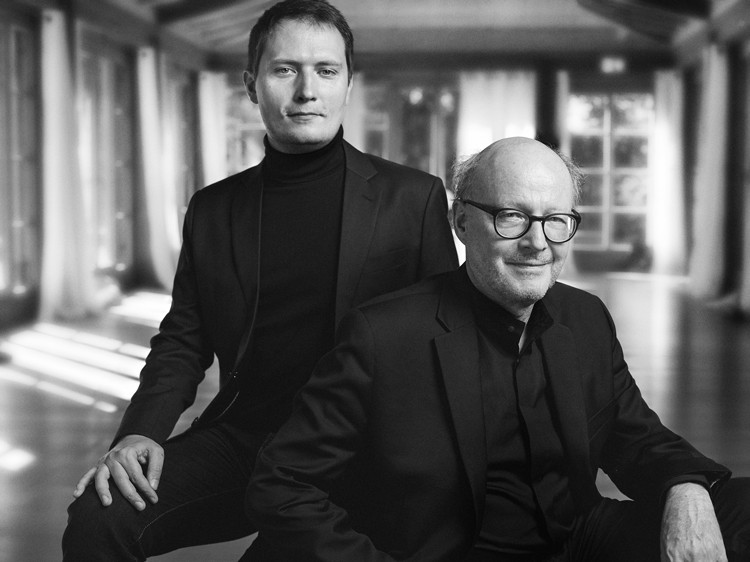Institute for Philosophy and Leadership
Leaders in top positions today are confronted with special challenges. The situations in which they have to make decisions are so complex that the conventional methods taught at university and in advanced training courses for decision-making are no longer effective. The uncertainty in which many decisions have to be made is not due to a lack of knowledge, but to the complexity and fundamental unpredictability of a globalized and digitized world. This situation has been significantly exacerbated by the Corona crisis.
In such situations, only leaders with a stable personality will be able to succeed. Making decisions in such an uncertain world is a challenge of the leaders´s personality.
They must be able to motivate themselves in order to guide and motivate others. They must be able to lead themselves so that they can lead others. Self-reflection and self-awareness are the most important tools. Only someone who has taken the time to work out the various issues in their own life, will be able to meet the demands of being a true leader.
“You can’t say to a manager:
Decelerate for a change!”
Prof. Dr. Michael Bordt SJ
Where we come from
Since the Institute for Philosophy and Leadership was founded in 2011, personality has been at the center of all our training and mentoring. In doing so, we combine three elements: the great tradition of philosophy, the spirituality of the Jesuit Order, and psychological research. Within philosophy, there has always been a current that places the individual human being´s a attitude toward themselves at the center of its reflections. It is as tangible in the millennia-old but still living philosophy of the Stoics, the wisdom of the East as it is in new currents of virtue ethics. The core of the spirituality of the Jesuit order is meditation, which, detached from the religious context, is now found as mindfulness meditation in medical-therapeutic contexts as well as in major commercial enterprises. We make this form of meditation, which is not bound to a specific religion, fruitful for our courses. Finally, the Self-Determination-Theory of Edward Deci and Richard Ryan is the framework we use within psychology. Their scientific research on intrinsic motivation, basic human needs, values, and life goals impressively confirms the philosophical insights of an ancient philosophical tradition.
Where we go
Our work has three main focuses: Firstly, coming from our experiences with working for the top executives of the BMW Group, we conduct training courses for members of the board of directors and the division heads of large companies. The topics are diverse and range from the need for fundamental transformations in the company to the challenges posed by merging companies. We believe that cultural change in a company must start at the top. We, therefore, only become active in a company if the board of directors or the management team of a department we work for participates in our training formats.
Secondly, we accompany entrepreneurial families in the issue of succession. The focus is not on technical or legal aspects, but on the question of whether the next generation will actually be able to take over their parents’ project. Will it suit the son and daughter to follow in their parents’ footsteps? How can they meet the different demands? How does the takeover change the family itself and what does it mean for the relationship between the siblings?
Our third focus is on one-week courses, which we hold several times a year at Schloss Elmau and which are structured in a slightly different way depending on the age and career stage of the participants. In cooperation with the Karl Schlecht Foundation and universities such as TU Munich or KIT in Karlsruhe, we work with ‘high potentials’ between the ages of 23 and 29, with the support of executives in top positions at DAX-listed corporations and large family businesses. We also offer intensive seminars for small groups of professionals up to their mid-40s, for whom leadership has become a central theme of their work. For them, leadership has become a key issue in their work, because they are, e.g., increasingly taking on leadership responsibilities in addition to their technical responsibilities. Or because their startup has reached a size where personnel management is becoming increasingly crucial to success. Or because they will take over a family business in the next generation. In a retreat, we accompany executives who are faced with fundamental, long-term decisions, who want to prepare for new challenges in an intensive time or who want to leave the past behind in order to give their lives a sustainable new direction.
Who we are
The Institute for Philosophy and Leadership was founded by Prof. Dr. Michael Bordt SJ and Johannes Lober, M. A., MBA in 2011, at that time as an institute within the School of Philosophy. Ten years after its foundation, the Jesuit Order decided to continue the Institute as an independent institution. In the legal form of a non-profit limited liability company with an educational mission, the profits are used in particular for the education and training of young people, who show talent and will to take personal responsibility for other people and our society in a leadership position.


